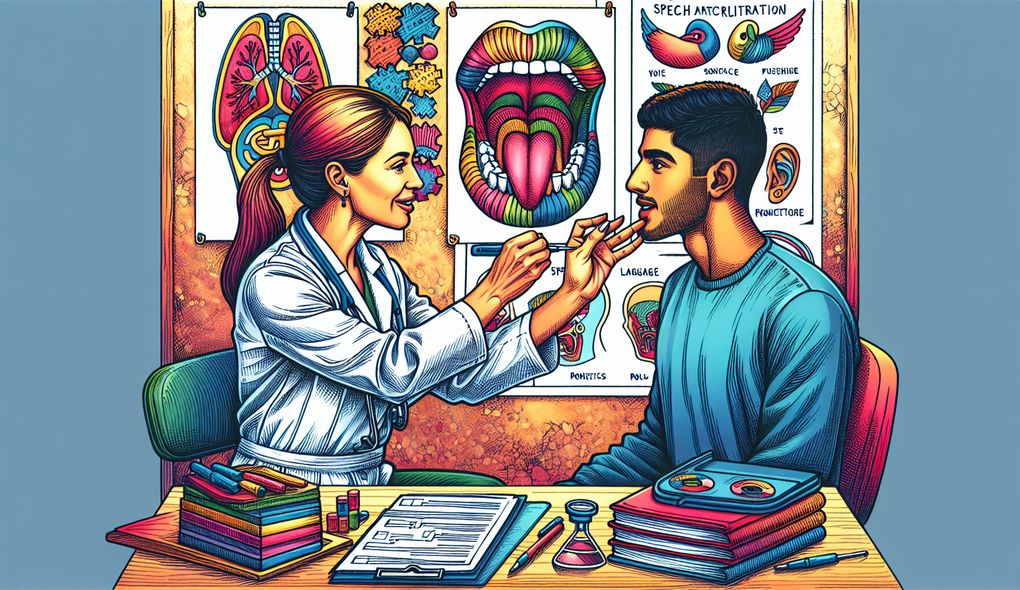Do you have experience integrating new techniques into your practice? If so, can you provide an example?
SENIOR LEVEL

Sample answer to the question:
Yes, I have experience integrating new techniques into my practice. One example is when I learned about a new therapy technique called LSVT LOUD, which is specifically designed for patients with Parkinson's disease. I took a training course on this technique and started implementing it with my patients who had Parkinson's. The results were amazing as this technique helped improve their voice and speech clarity. I saw significant improvements in their ability to communicate effectively and confidently. I continued to stay updated with the latest research and attended conferences to learn about new techniques and interventions that could benefit my patients.
Here is a more solid answer:
Yes, I have extensive experience integrating new techniques into my practice. For example, in my previous role, I actively sought out innovative treatment approaches to provide the best care possible for my patients. One specific technique I integrated was the use of telepractice for speech therapy. I recognized the potential benefits of this technology in reaching patients in remote areas or those with limited mobility. I underwent specialized training to become proficient in telepractice and developed customized therapy plans tailored to each patient's unique needs. This allowed me to provide therapy sessions remotely, ensuring continuity of care and maximizing outcomes. I also regularly attended workshops and conferences to stay updated on the latest advancements in the field and integrated evidence-based techniques, such as PROMPT (Prompts for Restructuring Oral Muscular Phonetic Targets), into my practice. By staying informed and embracing new techniques, I was able to enhance the effectiveness of my therapy and improve patient outcomes.
Why is this a more solid answer?
The solid answer provides specific details about how the candidate integrated new techniques into their practice, mentioning the use of telepractice and attending workshops and conferences to stay updated. The candidate also highlights the specific technique they integrated, PROMPT, and how it enhanced their therapy and patient outcomes. However, the answer could be further improved by providing more specific examples of the impact of integrating these techniques on patient progress and outcomes.
An example of a exceptional answer:
Absolutely! Throughout my career, I have actively sought out opportunities to integrate new techniques and approaches into my practice. For instance, I recently became certified in the Orton-Gillingham approach, an evidence-based method for teaching reading and spelling skills to individuals with dyslexia. I recognized the prevalence of reading difficulties among my clients and understood the importance of targeted interventions. By incorporating Orton-Gillingham techniques into my therapy sessions, I noticed significant improvements in my clients' reading abilities, decoding skills, and overall confidence. I also implemented a collaborative approach by partnering with local schools to create learning environments that support the use of these techniques outside of therapy. Additionally, I stay up-to-date with the latest research and advancements in the field by subscribing to relevant journals, attending conferences, and participating in online forums. This continuous learning allows me to identify and integrate new techniques that have the potential to positively impact my clients' progress and outcomes.
Why is this an exceptional answer?
The exceptional answer goes above and beyond by providing a specific example of a new technique integrated into the candidate's practice, the Orton-Gillingham approach, and the positive impact it had on clients with dyslexia. The candidate also demonstrates their proactive approach to collaborating with schools and staying updated with the latest research and advancements in the field. The answer effectively showcases the candidate's commitment to integrating new techniques and continuously improving their practice. However, the answer could be further improved by providing additional examples of new techniques integrated and their impact on different client populations.
How to prepare for this question:
- Research and familiarize yourself with evidence-based therapies and techniques that are relevant to the field of speech-language pathology.
- Stay updated with the latest research, advancements, and trends in the field by subscribing to journals, attending conferences, or joining professional associations.
- Participate in training programs or workshops to learn new techniques and approaches.
- Seek opportunities to collaborate with other professionals and multidisciplinary teams to exchange knowledge and ideas.
- Reflect on your past experiences and identify specific instances where you integrated new techniques into your practice and the impact it had on patients.
- Be prepared to discuss the challenges you faced when integrating new techniques and how you overcame them.
- Highlight your commitment to continuous learning and professional development in your response.
- Emphasize the importance of tailoring interventions to meet individual patient needs and providing evidence-based care.
What are interviewers evaluating with this question?
- Experience integrating new techniques into practice

